| |
Manijeh Navidnia
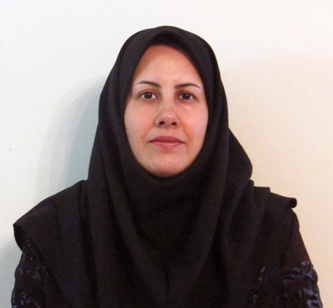
Global Harmony Association (GHA) Vice-President, GHA Ambassador of Peace and Disarmament from Harmony in Middle East, PhD, Professor of Sociology, Islamic Azad university Garmsar branch, Address: Garmsar, Iran http://www.societalsecurity.com/?lan=en&page=home http://peacefromharmony.org/?cat=en_c&key=669 Biography Manijeh Navidnia was born in 1964 in a middle town-family in Tehran. She was the first child and ended her primary school there, spent her secondary school in Isfahan and Tabriz, and studied her high school in Sa'di school in Mashhad that was the best school there at that time. Simultaneity getting her experimental diploma, she married in 1982 in Mashhad and bore her first child 3 years after. Then, after reopening of universities and her friends' admissions in various universities, she tended to continue her education, but because of crowd of university entrants, she ignored the experimental examination and participated in humanities examination in 1988. She was admitted with degree 5 in filed "social science teachership" at Mashhad Ferdowsi University and resumed her education. She bore her second child in 1991 and two years after, she finished bachelor's degree. At the same time she was admitted with degree 1 at Islamic Azad University Roudehen branch and ended her study in "social science research" in 1996. In this year for getting fellowship from Islamic Azad University Gonabad branch, she started to work there as a full time faculty member. After three years cooperation with Gonabad University, she was admitted with degree 3 at Islamic Azad University, Science & Research Tehran branch, in 1999 for studying Ph.D. of "sociology". At the same year she began to collaborate with Islamic Azad University, Central Tehran branch (Valiasr Institution) and collaborated with Research institute of strategic studies simultaneously. Introducing with Research institute of strategic studies resulted in her interest in strategic research and security. Her Ph.D thesis "A study on dimensions of societal security in family" was accomplished in this field. After graduation in 2004 and passing 6 years of collaboration with Islamic Azad University Central Tehran branch, she began to work with Islamic Azad university Garmsar branch as full time faculty member in 2005. However she continued her studies and researches in sociology in addition to teaching. The most of her scientific articles and research papers are related to security field. Publication of her first book "societal security" in 2009 indicates her professional efforts in social studies. -------------------------------------------------------------------------------------------------- 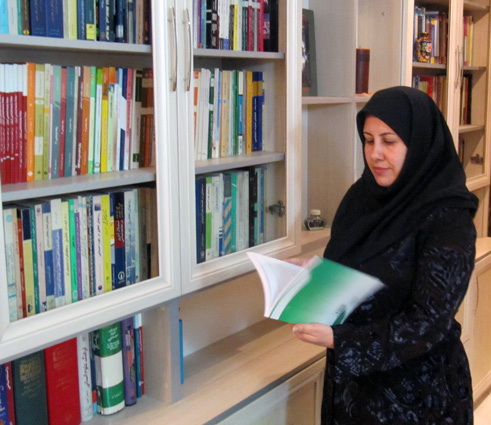
----------------------------------------------------------------------------------------------------------------------
US Election: In which Direction the World Is Moving?
Monday, February 13, 2017
Manijeh Navidnia
Doctorate in Sociology & Faculty Member at the Islamic Azad University
The rapid circulation of news across the world has done away with any possibility of living without information and humans in the present society are bombarded by a wave of various good and bad news from dawn to dusk. In getting that information, willingly or unwillingly, people keep abreast of decisions that are made and actions that are taken by various countries and are also informed about the direction of changes without actually knowing why or how developments are unraveling. one of the recent global developments, which is still at the top of the world news is the recent presidential election in the United States, which has elicited various reactions and quotes, as well as a wide range of sentiments from shock and awe to admiration and praise. A clamorous development, which came before the election in the United States, was the decision by the UK to get out of the European Union. The ripples from that decision still continue. on the other hand, the French are heading toward their own election in which slogan about the necessity for Paris to get out of the European Union has been among attractive slogans. The question that has been arisen as a result of what such political currents do is “in what direction the world is moving?” Toward what destination those countries, which were once considered as vanguards of globalization, are currently heading? Why the United States, which has a claim to be pursuing a policy of open society, has shown green light to form an alliance with Britain to promote totalitarianism? Or is France really ready to get detached and separated from the rest of Europe? And in short, why that integration and cooperation, which was promised by the process of globalization, has apparently hit a deadlock and has been gradually replaced with an expanding form of isolationism and detachment instead of attachment and connection?
Evidently, what we see today, has not come about overnight and its root causes and breeding grounds must be sought in a not-so-far past; a time when this process was still nascent and did not have much maneuvering room. However, it was largely ignored and as a result, it turned into a sweeping current and other approaches cannot cope with it now.
Once, modernity ruled that separation must be made between city and village, elite and layman, majority and minority and things like that, and after making sure about popularity and acceptance of these dualities, rejected one of them in favor of the other. once, the capitalist system reduced credit and dignity of humans to consumption in order to conquer more markets. once, secularism respected every form of freedom of action in order to get humans rid of all imposed boundaries. once, industrialization attached more value to tools and technologies than humans. And when extreme willingness toward specialization reduced people’s time to spend time with their relatives and make them happy, and in many other cases, nobody ever believed that human beings were moving far from favor, kindness, compassion, cooperation, love and support and were left alone by products and investment. Nobody would believe that in order to be kind, like any other asset, you would have to plant a seed and then harvest its crop. The modern man, who was availing himself of the spoils of kindness and compassion of previous eras, ignored the need to produce and reproduce love and friendships, and now that stocks of kindness and compassion have been exhausted, consumed and depleted, he is facing a barren desert of humanity, which wrenches any heart. Talking about kindness, favor and friendship has become so alienated in today’s life that the most common words used to describe those who talk about love and compassion by everybody is “simplicity” and “nativity.” The machine-like humans of the modern society, who owe their happiness to reserves of kindness and friendship, which were once extracted from the mine of humanity and handed down to them by their ancestors, are now facing famine and shortages as all reserves of humanity have been used up.
Naturally, an effort must be made to review the current conditions and something must be done to reconfigure the situation. However, how a human being grown in the context of those conflicts, and a person who has been bred for arenas of rivalry and conflict, with a world of rationality and tools around them and in a world of prices and pricing, could possibly think about others in their profiteering transactions? How can they think about others in their emancipatory efforts? How they would be able not to consider others as invaders and aliens? How is it possible for them to consider harm on others as harm on themselves? How can they think about a common solution between themselves and others? So, what will happen? Or what has already happened? By resorting to the principle of “national interests,” a human devoid of kindness and compassion is trying to improve his conditions. This comes at a time that multitudes of war refugee children, who are stuck behind bard-wire barriers of various countries, attest to emptiness and futility of this principle and there are many other bitter catastrophes, which cause modern man to feel ashamed.
Endorsing the principle of national interests and brave defense of this sanctified principle, remembers one of Victor Hugo’s Les Misérables and his man of law, who was looking for Jean Valjean for many years. The man of law in Hugo’s story was loathed by readers, because humans at that time were not still devoid of compassion and kindness and were well aware what would extreme commitment to one principle (here the rule of law) and victimizing other principles mean. Today, however, people have long forgotten about kindness and love and mercy as a result of which those committed to just one principle are mushrooming every day and the voice of those who cry out against sacrificing more important principles is lost in the clamor and onslaught of supporters of national interests. What cancer really is? Is it anything but uncontrolled growth of cells belonging to a body organ throughout the entire body? When national interests turn into the sole principle on the basis of which citizens in a country make decisions, won’t it led to the same cancerous growth and dominance of one principle over all? Shouldn’t prevalence of this new cancer in the field of humans’ collective life be prevented? Cancer endangers body health and kills it and it has been afflicting humans due to malnutrition and many other negative phenomena. Isn’t social cancer also a result of distancing form compassion, friendships and other positive human values at the present time, which is currently annihilating healthy life? Judgment about this issue is left to readers.
More By Manijeh Navidnia
*Suicide Attacks: A Crisis in Human Nature: http://www.iranreview.org/content/Documents/Suicide-Attacks-A-Crisis-in-Human-Nature.htm
*New Year Reminder of Need for “Common Experience of Linkage” in Foreign Policy and International Relations: http://www.iranreview.org/content/Documents/New-Year-Reminder-of-Need-for-Common-Experience-of-Linkage-in-Foreign-Policy-and-International-Relations.htm
*Middle East Security: Time for Dialogue Is Over: http://www.iranreview.org/content/Documents/Middle-East-Security-Time-for-Dialogue-Is-Over.htm
*These views represent those of the author and are not necessarily Iran Review's viewpoints.
--------------------------------------------------------------------------------------------------------------------
Iran Review>Articles Suicide Attacks: A Crisis in Human Nature MONDAY, JULY 25, 2016 Manijeh Navidnia Doctorate in Sociology & Faculty Member at the Islamic Azad University Not a long time has passed since the world was amazed by the astounding speed of scientific progress and the high pace of technology development before it was overcome by bitter and difficult bewilderment resulting from blasts and destructions. Humanity has been also taken aback by massacres and devastation more horrendous than bloodshed caused by military forces in the battlefields. What has caused the world to find itself in the vortex of such a maelstrom of wrath and grudge? How fear and horror could dominate the zeal and enthusiasm of human life? Why commands are issued for the annihilation of people in streets and avenues? For which of their acts people are paying such a bloody atonement? And there are also many other questions in this regard. A cursory glance at the environment around us would reveal the negligence and forgetfulness, which is a result of the grandeur of the city and urban life. Skyscrapers, mindboggling highways, attractive restaurants, multidimensional movie theaters, and thousands of other big and exciting achievements have overshadowed humanity in such a way that the necessity for attachments and dependence among human beings has been lost in the midst of these dazzling features. For a long time now, humans have been justifying their loneliness using their work and occupations as excuse, and avoid loving and sympathizing with each other. For many long years, various forms of insurance and social security services have provided refuge for humans and there are many people who seek companionship, rapport and accompaniment through directives and organizational orders. Nursing and caring for others is considered a job, while children rebuke their parents for having given birth to them and complain about it. Even learning science and arts is being made conditional on such propositions as “for what?” and “for what purpose?” In short, just look at any corner, and any kind and field of activity, and any form of happiness and preoccupation to find them devoid of the spirit of “humanity.” Nowhere can you find any trace of kindness and compassion. There is no friendship for the sake of friendship; and there is no favor without a payoff. Love and compassion are just a dream. The evidence to this claim is actions of those young people, who seek honor and rewards in the Afterlife through their suicidal acts and for shedding other people’s blood. Unlimited aggression and unbelievable violence by today’s young generation cannot be simply considered as a consequence of hardships, poverty, failures and disillusionments. This is true because in terms of age, these suicidal youths are not so old to be affected by intensity and depth of such maladies, which could possibly prompt them to create such a raging hell in the world. If the past generation of fathers and mothers was given to taking aggressive measures, it could be considered an untoward consequence of their poverty and failures, because the harm done to human soul is possible in a matter of forty and fifty years. However, when it comes to young people, due to their young age, they are not so wrapped in harms whose suffering and pain could lead to such bitter outpouring of anger. The reason behind their blood-laden cries and bloody rebellion should be sought in a human infrastructure, which lacks any experience in kindness, well-wishing and egalitarianism. They are grappling with a deprivation bigger and a shortcoming deeper than poverty. It is a more serious destitution and weakness, which has thrown them into the vortex of rage and fury. Because of their control and domination of the nature, humans have become so immersed in their sense of pride and honor that they ignore the basis and foundation of life, which is the “nature” itself, and this has caused the world to face an environmental crisis. It should be, however, noted that taking pride in scientific and technological achievements has led to a greater negligence, which is forgetting the “human nature.” The essence of humanity is made of kindness and affection.The pillars of his existence include love and compassion. His eyes are opened with laughter and grace and his soul remains warm with kindness and friendship. His existence finds meaning through attachment and dependence, he knows himself through helping and assisting others, and well-wishing is the measure of his human essence. However, ignoring the human nature has caused anger to replace kindness, enmity to outdo friendship, hands meant for help and assistance to be used for annihilation, affection to be sacrificed for hatred and grudge, and in short, humans, big and small, young and old, man and woman, to be killed at all corners of the earth as a result of the “crisis in human nature.” Key Words: Suicide Attacks, Crisis, Human Nature, Massacres, Devastation, Friendship, Violence, Navidnia More By Manijeh Navidnia: *New Year Reminder of Need for “Common Experience of Linkage” in Foreign Policy and International Relations: http://www.iranreview.org/content/Documents/New-Year-Reminder-of-Need-for-Common-Experience-of-Linkage-in-Foreign-Policy-and-International-Relations.htm *Middle East Security: Time for Dialogue Is Over: http://www.iranreview.org/content/Documents/Middle-East-Security-Time-for-Dialogue-Is-Over.htm *Security and Protests against Insulting Film: http://www.iranreview.org/content/Documents/Security-and-Protests-against-Insulting-Film.htm *Photo Credit: Yournewswire.com Original: http://www.iranreview.org/content/Documents/Suicide-Attacks-A-Crisis-in-Human-Nature.htm ------------------------------------------------------------------------------ The article’s abstract in Leo Semashko’ view. «Why commands are issued for the annihilation of people in streets and avenues? The necessity for attachments and dependence among human beings has been lost in the midst of our dazzling features… Nowhere can you find any trace of kindness and compassion…. Unlimited aggression and unbelievable violence by today’s young generation cannot be simply considered as a consequence of hardships, poverty,… The reason behind their blood-laden cries and bloody rebellion should be sought in a human infrastructure, which lacks any experience in kindness… [Suicider bombers] ignore the basis and foundation of life, which is the “nature” itself… Ignoring the human nature has caused anger to replace kindness… and in short, humans, big and small, young and old, man and woman, to be killed at all corners of the earth as a result of the “crisis in human nature.”» Leo Semashko’s comment. Ignoring the "human nature", its harmony, love, peace and compassion is implanted by ideology of misanthropy, violence and endless war, which is based on xenophobia and military science, creating new weapons of the mass and individual destruction. Unfortunately, until now there is no strong scientific tool capable to effectively counter this ideology. Traditional cultural tools - humanistic philosophy, religious treatises, moral norms and similar are powerless against this ideology, which in the middle of the last century blossomed with Nazi genocide - conscious, "scientific" based destruction of "non-Aryan" nations and at the beginning of the 21st century - a total terror. To counter this ideology is capable only Global Peace Science (GPS) making the Copernican revolution in the human social consciousness, overcoming more than two centuries of its backlog from war and natural sciences. The higher dignity of GPS is that it reveals the entire human nature as harmony of SPHRONS - the most fundamental classes of the population. Harmony of SPHERONS is the deepest and eternal human infrastructure. It is ignored, by the one hand, the ignorance of it, and on the other – by the mercenary interests of the ruling richest elites (less than 1% of the population), which reap the huge profits from the suicide attacks in ignoring harmony, love, peace, compassion and humanity. Global humanitarian education in GPS will be able to form a universal humanistic consciousness and a new generation of young people with a clear understanding of harmonious human nature and indestructible immunity from terrorism, militarism and violence. Комментарий Льва Семашко. Игнорирование «человеческой природы», ее гармонии, любви, мира и сострадания насаждается идеологией мизантропии, насилия и бесконечных войн, в основе которой лежит ксенофобия и военная наука, создающая новое оружие массового и индивидуального уничтожения. К сожалению, до сих пор не существует сильного научного инструмента, способного эффективно противостоять этой идеологии. Традиционные инструменты культуры – гуманистические философии, религиозные трактаты, моральные нормы и т.п. оказываются бессильными перед этой идеологией, которая в середине прошлого века расцвела нацистским геноцидом – сознательным, «научно» обоснованным уничтожением «неарийских» народов, а в начале 21 века – тотальным терроризмом. Противостоять этой идеологии способна только Наука Глобального Мира (НГМ), совершающая Коперниканскую революцию в гуманитарном общественном сознании, преодолевая его более двухвековое отставание от военных и естественных наук. Высшее достоинство НГМ заключается в том, что она раскрывает природу человечества в целом как гармонию СФЕРОНОВ - наиболее фундаментальных классов населения. Гармония СФЕРОНОВ составляет самую глубокую и вечную человеческая инфраструктуру. Она игнорируется, с одной стороны, невежеством в ней, а с другой, корыстным интересом богатых правящих элит (менее 1% населения), которые получают огромные прибыли от атак смертников в игнорировании гармонии, любви, мира, сострадания и гуманизма. Глобальное гуманитарное образование в НГМ способно сформировать универсальное гуманистическое сознание и новые поколения молодых людей с ясным пониманием гармоничной человеческой природы и нерушимым иммунитетом от терроризма, милитаризма и насилия.
------------------------------------------------------------------------------------------------------------------------------
Middle East Security: Time for Dialogue Is Over WEDNESDAY, FEBRUARY 17, 2016 Manijeh Navidnia Doctorate in Sociology & Faculty Member at the Islamic Azad University For many years, conflicts between Palestinians and Israel made up the main headlines in mass media across the Middle East. For a few years now, however, the developments of Syria have overtaken the issue of Palestine in hitting the headlines. Following escalation of horrendous developments in Syria, international community finally brought influential countries in the Middle East to the negotiating table in order to prevent continuation of heart-rending incidents in Syria. This process apparently shows that the time for war and conflict is over and at present, diplomatic methods, which are based on multilateral dialogue and agreement, are now at the helm. But is the present time, a high time for dialogue in reality? In a social world, existence and absence of methods and behavioral models are usually determined by “constructs and structures related to them.” For example, you can only talk about an end to war when plurality of peace and reconciliation structures at three subnational, national and transnational levels outnumber instruments of war and the high number of armies. You can witness friendship and cooperation only when there is no room left for rivalries and belligerence. Now, at a time that power is given the upper hand in interactions, and countries see their prestige hinged on weapons and equipment of war, and at a time that playing a role in the region is tied to deployment of warriors and soldiers and many other cases, will agreement and dialogue seem really meaningful? Or dialogue sessions are just used as another way for saber-rattling? Assuming that evolution of policies, has pushed countries toward dialogue and collective cooperation in order to establish security; assuming that countries have given up the concept of enemy and efforts made to know the enemy; assuming that perception of risk and threat has been replaced with perception of good and opportunity; and through many other assumptions, doesn’t it seem that the time for simple cooperation and agreement is over and shouldn’t we resort to new means for establishment of security in proportion to the maturity of humanity? Experimentation and laboratory method is one of the methods that has been there as long as humanity existed, but common use of experimentation started since the Renaissance and modern science and technology is its greatest achievement. Since the main subject of cognition, that is humans, is considered as the object in Humanities, they marginalized experimentation method and focused on historical and documentary methods as well as different observation methods. In the meantime, security studies were no exception to this rule and opted for descriptive and analytic methods and even now, they have no doubt about these methods. At the same time, various methods of experimentation have led to various discoveries, inventions, and recreations, and as every day passes by, they create new knowledge, media, tools and means, thus, introducing new models for people’s lives. Ignoring experimental methods in security studies has led to recourse to ancient mechanisms (which belonged to the military society) and have caused insecurity (by increasing tools and structures for war and combat) in a bid to establish security. Another important problem, however, is that despite all their efforts, officials in charge of security matters have been unable to establish security as a result of which, massacre, destruction and homelessness still continue. In order to resolve the security crisis, the Middle East has no choice, but to return to “experimental methods.” As long as officials in charge of security matters, security building politicians, ministers and statesmen, and security planners in the Middle East are busy determining principles of security in think tanks, their achievement will be nothing more than a handful of bills and decision. However, if they entered the field and spent a night in the ruins of a city; felt the pain of shrapnel on their skin; looked upon the dead bodies of their loved ones with their own eyes, and smelt fresh blood with their own noses; their entire bodies shivered with the loud sound of blasts; had to drag their wounded child into a shelter; felt the horror of being at a house, which may be destroyed by an explosion at any moment; and felt death hovering overhead as a result of hunger and came to grips with many other pains and sufferings, then “security,” like other fields of science would be able to create itself through creation of new practical approaches on the basis of “experimentation.” “Experimentation” is a direct and unmediated method, which makes way for clear and realistic understanding. Therefore, the solution for the establishment of security in the Middle East and even the world is to opt for “methods of experimentation.” This means adoption of experimentation methods by those involved in establishing security, from high-ranking state officials in regional countries to political activists in their secure cities, who are busy supporting this or that person. Even a reductionist variety of experimentation may be sufficient. All those people who have a share in establishing security in the Middle East, must spend just a week without usual security measures. Although minimum experimentation does not lead to a drastic change in decisions, it reminds them of the necessity to revise their methods and, perhaps, even this minimum degree of experimentation would finally show a way out of the existing regional crisis. (Emphasis added by Leo Semashko). Key Words: Middle East, Security, Dialogue, Syria, Diplomatic Methods, War, Conflict, Experimentation, Realistic Understanding, Regional Crisis, Navidnia Original: http://www.iranreview.org/content/Documents/Middle-East-Security-Time-for-Dialogue-Is-Over.htm More By Manijeh Navidnia: *Security and Protests against Insulting Film: http://www.iranreview.org/content/Documents/Security-and-Protests-against-Insulting-Film.htm *Principles Enshrined by the NAM Summit in Tehran: http://www.iranreview.org/content/Documents/Principles-Enshrined-by-the-NAM-Summit-in-Tehran.htm *Syria’s Best Way out of the ongoing Crisis: http://www.iranreview.org/content/Documents/Syria-s-Best-Way-out-of-the-Ongoing-Crisis.htm ---------------------------------------------------------------------
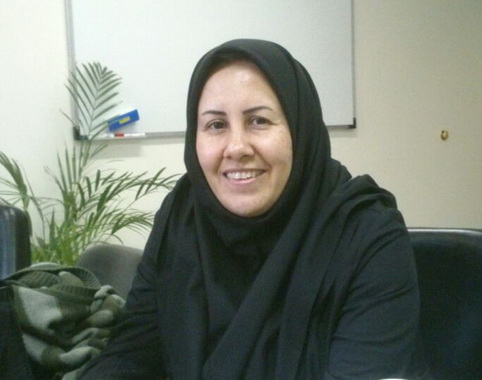
6.2.5. Principle of Spheral/Societal Security of Global Peace
Manijeh Navidnia Global Peace Science…. 2016, New Delhi, page 192: http://peacefromharmony.org/docs/global-peace-science-2016.pdf This article is a continuation of my article on the same subject in the ABC of Harmony [15]. It was set inextricable link and dependent societal/spheral security from the level of social harmony. Consequently, societal security is an essential attribute of global peace, which, like security, has a source of social harmony. As adopted in this book (see the first chapter), the source and actors of social harmony is harmonious classes of the population employed in four spheres of social production - SPHERONS. In this regard, logically now analyze societal security as necessary consequence of SPHERONS together with global peace. Societal security in its symbiosis with global peace performs instrumental function of SPHERONS for its provision. Therefore, societal security can be recognized as a necessary principle of global peace, for which both SPHERONS are full responsible. True and full-scale security can only give global peace from harmony of SPHERONS, as shown in the preceding chapters. The SPHERONS concept theoretically allows defining the following key features of societal security: 1. "Reference object" and "type of threat", corresponding to the four spheres of social production, in which workers SPHERONS and 2. The phases or stages/levels of societal security, constituting an endless cycle of global peace, the limit to improve which does not exist. The security assessment requires extensive statistics, in the first place, the threats and risks in each social sphere. Unfortunately, for most of them, such statistics do not exist. It can get a powerful stimulus for the development in connection with the development of global statistics of SPHERONS (see chap. 2). Theoretical development phases and cycles of societal security in every sphere within their harmonization carried SPHERONS is a new important task of global peace science, which requires a lot of efforts and time. Manijeh Navidnia PhD., Professor of Sociology, faculty member at Azad University, Garmsar Branch, Iran Web: www.SocietalSecurity.com, E-mail: navidnia {@} hotmail.com -----------------------------------------------------------------------------------------------------
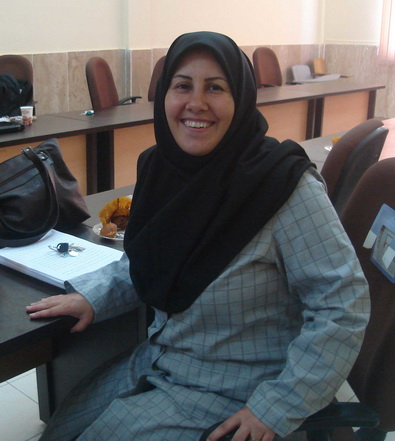
Bibliography Articles: Principle of Spheral/Societal Security of Global Peace Dr. Manijeh Navidnia, Global Peace Science…. 2016, New Delhi, page 192: http://peacefromharmony.org/docs/global-peace-science-2016.pdf Societal Security and Social Harmony Dr. Manijeh Navidnia, The ABC of Harmony for Global Peace…2012, New Delhi, pages 205-206: http://peacefromharmony.org/?cat=en_c&key=503 Security Priorities of Citizens in Various Zones of Tehran Dr. Manijeh Navidnia, Summer 04 / 2010, Tehran, Quarterly Journal of Human Geography, VOL: 2, Issue 2, Page 87 - 100. Police, Security and Family Institution Dr. Manijeh Navidnia, 01 / 11 / 2009, Tehran, Institude of Humanities and Cultural Studies, Page 39 - 56. The Analysis of Relationship Between Social Conditions and Security Discourses Dr. Manijeh Navidnia, Summer 09 / 2009, Ashtian, Quarterly Professional Journal of Sociology, VOL: 5, Issue 2, Page 137 - 156. The police perspective; security and social capital Dr. Manijeh Navidnia, Summer 06 / 2009, Tehran, Research Institute of Strategic Studies (Rahbordi), VOL: 12, Issue 2, Page 29 - 46. The Analysis of Relationship Between Situations of Walfare and Societal Security, A Study in Tehran Dr. Manijeh Navidnia, Spring 01 / 05 / 2008, Tehran, Security and Regularity Quarterly, VOL: 1, Issue 1, Page 91 - 114. Super-security and Intra-security fields regarding internal security Dr. Manijeh Navidnia, Fall 20 / 02 / 2008, Tehran, Quarterly of Public Security, VOL: 3, Issue 4, Page 21 - 51.
Role of police women in public security
Dr. Manijeh Navidnia, Summer 01 / 09 / 2007, Terhan, PoliceZan Quarterly, VOL: 1, Issue 2, Page 53 - 75.
Societal Security of Family and the Place of Residence
Dr. Manijeh Navidnia, Fall 10 / 2006, Tehran, Social Welfare Quaterly, VOL: 6, Issue 22, Page 87 - 107.
The Analysis of Relationship between Societal Security and Iranian Identity
Dr. Manijeh Navidnia, fall 01 / 07 / 2006, Ashtian, Technical Journal of Sociology of Azad University, VOL: 2, Issue 3, Page 131 - 156.
A Theoretical Consideration on Societal Security with Emphasis on Types of Security
Dr. Manijeh Navidnia, Spring 01 / 03 / 2006, Tehran, Research Institute of Strategic Studies (Rahbordi), VOL: 9, Issue 1, Page 53 - 72. Books: Societal Security Dr. Manijeh Navidnia, Tehran: Research Institute of Strategic Studies (Rahbordi), 2009. Research in Dimensions of Societal Security Dr. Manijeh Navidnia, 2004. ------------------------------------------------------------------------------------------------------------------
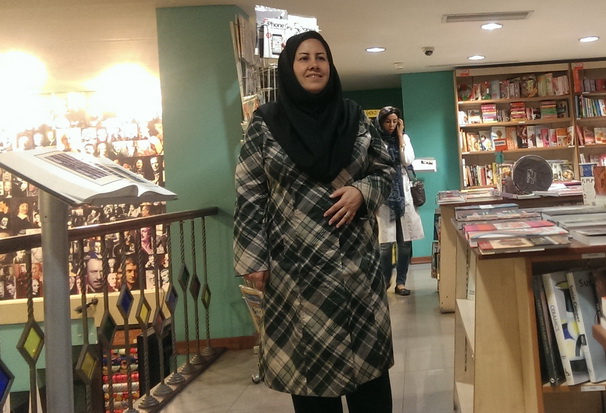
Up
|





